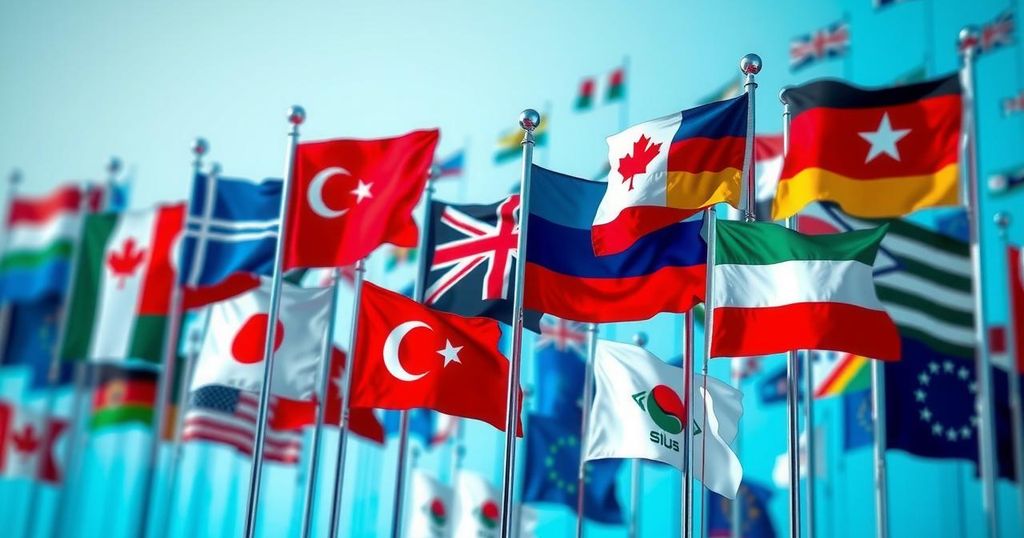Impending Impacts of Trump’s New Reciprocal Tariffs on Global Trade

The Trump administration is set to announce new reciprocal tariffs on April 2, affecting all US trade partners. The announcement is intended to address long-standing unfair trade practices. Immediate tariffs include a 25% levy on auto imports, and countries, particularly India, are preparing for economic implications. Responses from US allies indicate potential retaliatory measures.
On April 2, the Trump administration is anticipated to unveil new reciprocal tariffs affecting all US trade partners, although precise details remain undisclosed. Prior to this announcement, President Donald Trump was consulting with advisors to ensure the plan’s efficacy. According to White House spokeswoman Karoline Leavitt, the forthcoming tariff scheme aims to rectify long-standing unfair trade practices that have purportedly disadvantaged the United States.
Leavitt indicated that the implementation of new tariffs on countries levying high duties on US goods will commence immediately post-announcement. Specific provisions include a 25% tariff on auto imports, set to take effect on April 3. Despite the impending changes, US trade partners, particularly India, are maintaining a cautious stance amid the uncertainty precipitated by the tariff conflict.
India is concentrating efforts on reaching a bilateral trade agreement with the US, despite President Trump’s assertions regarding a significant reduction in New Delhi’s tariffs. Indian officials have devised four potential scenarios to assess the new tariffs’ effects on bilateral trade and remain optimistic about the progress in negotiations.
US Treasury Secretary Scott Bessent communicated to Republican lawmakers that the forthcoming tariffs would establish a cap on the maximum tariff rates that countries may encounter, with reductions possible contingent upon the compliance of trade partners with US demands. Reports suggest that Trump’s aides are contemplating a general 20% tariff increase on imports from all countries, with projected revenues potentially allocated as rebates to impacted sectors.
The Wall Street Journal notes that the United States is considering a more selective tariff strategy that may not reach the maximum 20% universally. Additionally, Canada and the European Union have expressed firm opposition to Trump’s tariff strategy, with Canada pledging to retaliate with its own tariffs, and the EU seeking a negotiated solution while preparing to defend its economic interests.
In conclusion, the impending announcement of new reciprocal tariffs by the Trump administration aims to address perceived unfair trade practices. The implementation will have immediate effects, particularly on auto imports, and is part of a broader strategy that involves significant negotiations with trade partners like India. The responses from other nations indicate potential trade tensions ahead, as countries commit to defending their economic interests.
Original Source: www.hindustantimes.com








